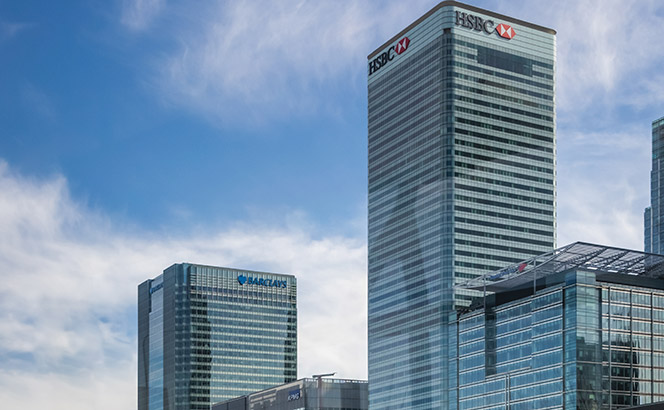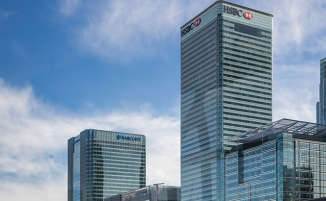After a tense weekend of negotiations, the Bank of England announced on Monday (13 March) that HSBC would buy the UK branch of collapsed US bank Silicon Valley Bank (SVB). The acquisition, which was completed for a token amount of £1, prevents SVBUK being put into insolvency.
The Bank of England said in a statement that all depositors’ money with SVBUK is safe and secure as a result of this transaction: ‘SVBUK’s business will continue to be operated normally by SVBUK. All services will continue to operate as normal and customers should not notice any changes.’
Clifford Chance acted on the buy-side for HSBC, while Hogan Lovells provided advice to clients in the UK and US through its multi-practice SVB Task Force. Legal Business understands that Slaughter and May acted for SVBUK and Ashurst for the Bank of England, with Freshfields Bruckhaus Deringer among other firms playing a role in the acquisition.
Despite ongoing tumult in financial markets, UK banking and corporate lawyers greeted the news of the acquisition with optimism.
Jonathan Chertkow, a partner in Hogan Lovells’ financial services team, spoke about the deal to Legal Business. ‘From a fintech perspective, from a bank confidence perspective, this should give everyone real confidence. This was resolved quickly and in a way that protected depositors. That’s clearly a good outcome for everyone. The powers that the regulators have were designed to explore various options for how best to resolve a bank in difficulty. And, very quickly, over a weekend, they’ve done that.’
Taylor Vinters corporate partner Charles Fletcher took a similar view. ‘Action was taken really quickly, with prioritisation from policymakers, because SVB’s operations are so important to our technology and life science sectors, which in turn are so important as a source of growth and prospects for the UK in the short, medium, and long term.’
The rescue deal preserves a key source of funding for the UK tech sector. ‘SVB has been a mainstay of the emerging technology and venture capital ecosystem in the UK’, said Fletcher. ‘They’ve been a really valuable source of both banking services and debt finance to our emerging companies. They’ve been a go-to specialist provider in a part of the market that has been underserved.’
SVBUK had been so crucial in part because traditional lenders have shied away from making major investments in the relatively untested sector.
With SVBUK now owned by a major bank that may change. HSBC’s shares fell 3.8% on Monday on the back of the announcement, and dropped by a further 4.6% between Tuesday and Wednesday. Between Wednesday and Thursday they increased by 2.6%, for a total decline of 9.5% for the five days to Wednesday.
But Fletcher argued that the longer-term picture is far rosier than the immediate drop on Monday suggests. ‘I think HSBC will have got a bargain here. My hope is that they will invest in continuing SVB’s mission in the UK – that they will see that this is actually a serious book of business here, with some great companies in the innovation economy.’
Arguably, a collapse on this scale should, by rights, send shockwaves through affected industries. While SVB was not on the level of the true titans of US banking, such as JP Morgan Chase and Bank of America, it was significant, as the sixteenth-largest bank in the US financial system. And its collapse was the biggest banking failure since 2008.
Still, lawyers do not predict that clients in the sector will move en masse to more established banks. ‘When there’s a shock like this, you often see a flight to safety, to size and scale’, Chertkow explained. ‘But I suspect, if that happens, it’ll be relatively short-lived, because there’s still a lot of innovation, a lot of competition in the market.’
The key question on the minds of clients will be the risk of contagion, and lawyers already note an increase in demand for advice on risk management.
‘Rapidly rising interest rates have created a concern here’, Chertkow noted, ‘and it’s very difficult to say whether that has wider contagion risk.’
But the wider market can take heart from the fact that factors unique to SVB were crucial to its collapse. SVB was doubly exposed to risk from interest rate increases, due to both its significant investment in US Treasury bonds and its client base’s strong reliance on venture capital, which tends to be less willing to invest when rates are higher.
Venture capital investment in tech may be down from the soaring heights it reached in 2021, but Fletcher was keen to stress that it is by no means drying up. He said: ‘SVB was a bank that had a challenge to deploy funds appropriately following a surge of deposits in 2021. Evidently, they invested in the wrong log-term financial instruments and they got caught out in terms of their own treasury and investment strategy as interest rates rose significantly.’
Crucially, SVB in the United States was an outlier in terms of deposit protection. The average US bank has about 50% of its deposits covered by the Federal Deposit Insurance Corporation’s (FDIC) guarantee, capped at $250,000. JP Morgan Chase and Bank of America each have about 30% of their deposits covered. At the end of 2022, just 2.7% of SVB’s deposits were protected.
While US regulators failed to find a buyer for SVB on Sunday, their announcement that same night that all depositors would have all their deposits protected provides confidence to the sector, reducing large investors’ incentives to pull their money out of similar operations, and in turn mitigating the risk of similar bank runs in future.
In this way, regulators in the US and the UK were able to limit the fallout from the crash.
Still, lawyers should expect to see a significant increase in regulatory work. Chertkow said: ‘There will be questions asked on both sides of the Atlantic, about what the regulators were looking at, and whether they had information that could have predicted this.’
He also noted that the story will impact ongoing debates about post-Brexit changes to the UK regulatory regime. ‘There’s always a tension in how far you go, whether you have a light-touch regime to improve competition and boost the economy. This event will weigh into some of those decisions. It focuses the mind when you have an event like this. It’s now less theoretical than it might otherwise have seemed, when there hadn’t been anything like this for a decade or more.’
Investigations will likely focus in particular on the speed of the collapse. Just after market close on Wednesday 8 March, SVB announced that it had sold some of its securities at a loss, and that it was seeking to raise $2.25bn in a new share sale. On Thursday, venture capital firms including the influential Founders’ Fund advised portfolio companies to pull their deposits out of SVB.
News of this advice spread, and a full-on bank run began. Trading in SVB shares was halted on Friday morning, and the bank was shuttered by California regulators before the end of the day, and placed into receivership under the FDIC.
Chertkow noted: ‘The speed with which it happened was pretty unusual, and probably a reflection of the digital age we’re now in.’ How to guard against bank runs in such a fast-paced environment will be one of the main questions with which regulators grapple moving forwards.
Clients continue to seek advice, and many law firms have put together cross-border and cross-practice teams to meet demand. But the message remains one of cautious optimism. ‘I think this could have been far worse for customers’, Chertkow said. ‘It’s worked well to come out with a great solution where nobody has lost any money that they deposited, and nobody has lost access to any facilities that they might need to draw down.’
In Fletcher’s view, the UK tech sector in particular has reason to be optimistic: ‘After an anxious few days, it’s great to see that our tech companies got the support they needed, and can go back to being disruptive mould-breakers that are squarely focused on tackling some of the biggest challenges of modern life . The main thing it means is, back to business as normal for them. It’s crisis averted.’












